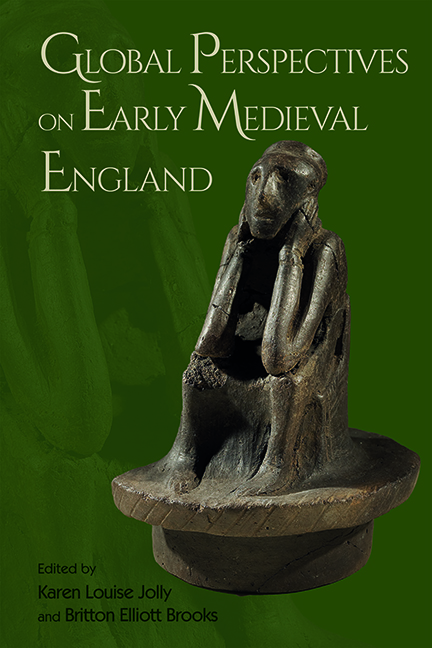Chapter 5 - Britain, the Byzantine Empire, and the Concept of an Anglo-Saxon ‘Heptarchy’: Hārūn ibn Yahyā's Ninth-century Arabic Description of Britain
Published online by Cambridge University Press: 26 May 2022
Summary
THE FOCUS of the following discussion is an intriguing Arabic account of early medieval Britain that appears to have its origins in the late ninth century. Despite being rarely, if ever, mentioned by historians of Britain concerned with this era, this account has a number of points of interest. In particular, it may contain the earliest reference yet encountered to the idea that there were seven ‘Anglo-Saxon’ kingdoms – a ‘Heptarchy’ – in pre-Viking southern and eastern Britain (the area conventionally termed Anglo-Saxon England), and both it and a related tenth-century Persian text imply that a potential sixth- to seventh-century sense of Britain as still in some way part of the Byzantine world continued to persist in Byzantine thinking, or was at least remembered, into the ninth century.
The author of the account under discussion here is Hārūn ibn Yaḥyā, about whom little is known beyond the fact that he was probably a native of the Levant who is usually thought to have been either a Muslim or possibly an Eastern Christian from Syria. Hārūn was taken prisoner by the Byzantines in Palestine at Ascalon (modern Ashkelon, Israel) probably in the 880s – perhaps a little before 886 – and was subsequently kept as a prisoner of war at Constantinople for a period, before being released and then choosing to travel westwards to Thessalonica, Venice and finally Rome. The accounts he left of Constantinople, Rome and north-western Europe survive in fragments preserved by the early tenth-century Persian author, ibn Rusta, a native of Isfahan (Iran), in his Kitāb al-Aʿlāḳ al-nafīsa (‘Book of Precious Records’) of c. 903–13. Ibn Rusta includes the following passage on Britain that is derived from Hārūn ibn Yaḥyā's account:
From this city (sc. Rome) you sail the sea and journey for three months, till you reach the land of the king of the Burjān(here Burgundians). You journey hence through mountains and ravines for a month, till you reach the land of the Franks. From here you go forth and journey for four months, till you reach the city (capital) of Barṭīniyah (Britain). It is a great city on the shore of the Western Ocean, ruled by seven kings.
- Type
- Chapter
- Information
- Global Perspectives on Early Medieval England , pp. 94 - 114Publisher: Boydell & BrewerPrint publication year: 2022

